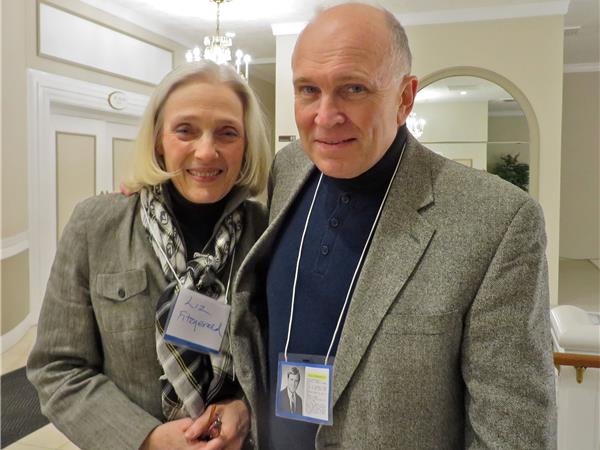Ironically one of JFK's goals when he went to Dallas that fateful day was to condemn the notion pushed by the neocons that peace was a sign of weakness. He believed that the best way to demonstrate American strength was by being a nation striving toward peace instead of aggressive actions." His greatest desire as president was to break the neocon ideology that has dominated Washington policy since the end of World War II. Whatever commitment to peace JFK brought to his presidency, it was when he and Khrushchev faced the abyss of nuclear annihilation during the Cuban Missile Crisis that sealed the deal and led to the American University speech.
-Chapter 6: Passages from JFK's Plan resonate with Badshah Khan's message

JFK 1963 Commencement Address, American University Washington, D. C
(Image by Cecil Stoughton) Details DMCA
"I have chosen this time and place to discuss a topic on which ignorance too often abounds and the truth too rarely perceived. And that is the most important topic on Earth peace. What kind of a peace do I mean? And what kind of a peace do we seek? Not a Pax Americana enforced on the world by American weapons of war. I am talking about genuine peace, the kind of peace that makes life on earth worth living, and the kind that enables men and nations to grow, and to hope, and build a better life for their children -- not merely peace for Americans but peace for all men and women, not merely peace in our time but peace in all time.
Some say that it is useless to speak of peace until the leaders of the Soviet Union adopt a more enlightened attitude. I hope they do. I believe we can help them do it. But I also believe that we must reexamine our own attitude for our attitude is as essential as theirs. And every citizen who despairs of war and wishes to bring peace, should begin by looking inward by examining his own attitude toward the possibilities of peace, toward the Soviet Union and toward freedom and peace here at home.
First, examine our attitude toward peace itself. Too many think it is impossible. But that is a defeatist belief. It leads to the conclusion that war is inevitable, that mankind is doomed, that we are gripped by forces we cannot control. Our problems are manmade. Therefore, they can be solved by man. Man's reason and spirit have often solved the seemingly unsolvable and we can do it again.
Let us focus on an attainable peace based on a gradual evolution in human institutions, on a series of actions and effective agreements which are in the interest of all concerned. With such a peace, there will still be conflicting interests, as there are within families and nations. World peace, like community peace, does not require that each man love his neighbor, it requires only that they live together in mutual tolerance, submitting their disputes to a just settlement.
So let us persevere. Peace need not be impracticable, and war need not be inevitable. By defining our goal more clearly, by making it seem more manageable and less remote, we can help people to see it, to draw hope from it, and to move irresistibly toward it.
And second, let us reexamine our attitude toward the Soviet Union. It is discouraging to read a Soviet claim that "there is a very real threat of a preventive war being unleashed by American imperialists against the Soviet Union." It is sad to realize the extent of the gulf between us. But it is also a warning to the American people not to fall into the same trap as the Soviets, not to see only a distorted view of the other side, not to see conflict as inevitable, accommodation as impossible, and communication as nothing more than an exchange of threats.
No government or social system is so evil that its people must be considered as lacking in virtue. No nation in the history of battle ever suffered more than the Soviet Union in the Second World War. At least 20 million lost their lives. A third of the nation's territory, including nearly two-thirds of its industrial base, was turned into a wasteland.
Next Page 1 | 2 | 3 | 4 | 5 | 6 | 7 | 8 | 9 | 10 | 11 | 12 | 13 | 14 | 15 | 16 | 17 | 18 | 19 | 20 | 21 | 22 | 23 | 24 | 25 | 26 | 27 | 28 | 29 | 30 | 31 | 32 | 33 | 34 | 35 | 36 | 37 | 38
(Note: You can view every article as one long page if you sign up as an Advocate Member, or higher).





